Best AI tools for< Dictate Notes >
9 - AI tool Sites
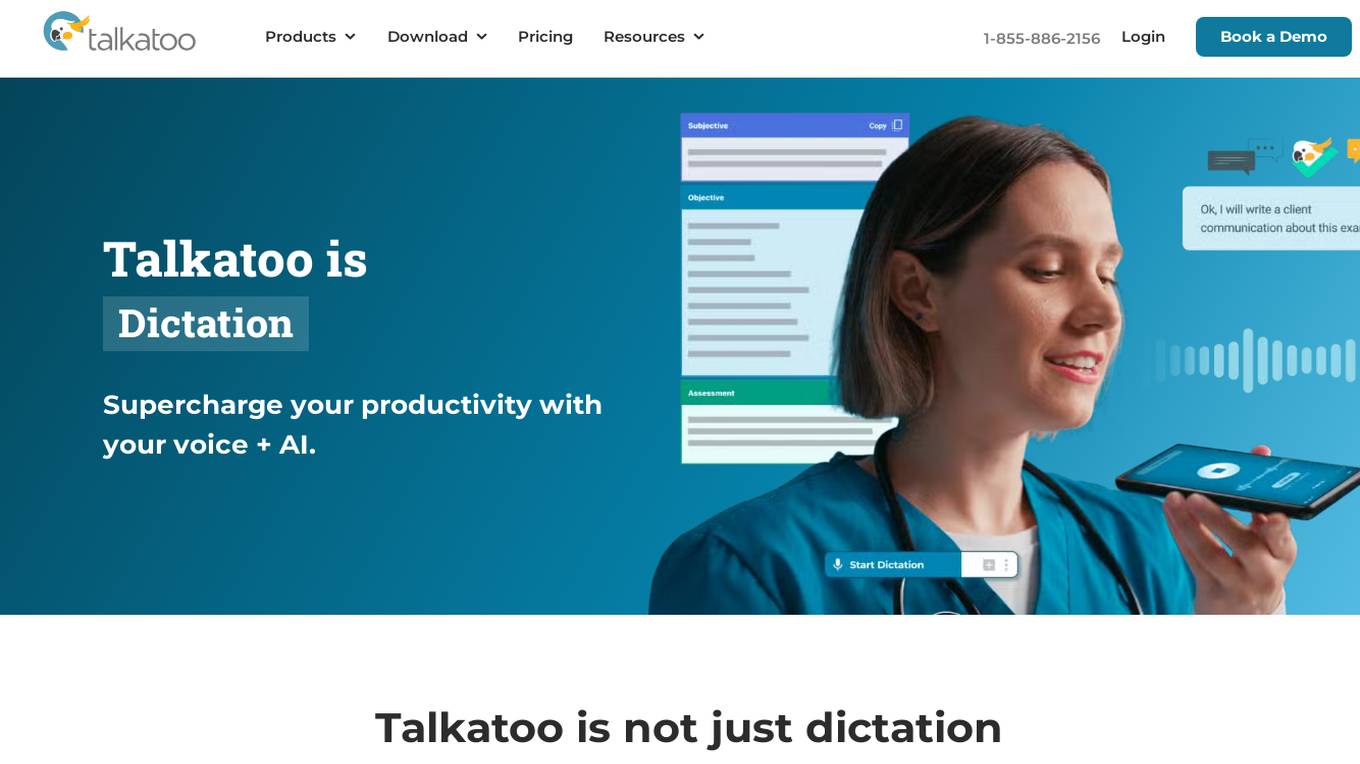
Talkatoo
Talkatoo is a dictation software that uses AI to help veterinarians save time and increase productivity. It offers three levels of control, so you can choose how hands-off you want to be. With Verified, you can simply record your notes and our scribes will verify the accuracy and place them in your PMS for you. With Auto-SOAP Records, you can record an entire exam or dictate your notes after and have Talkatoo auto-magically format the recording into a SOAP note, or other template. With Desktop Dictation, you can dictate in any field, in any app, on Mac or Windows. You can even connect your mobile device as a secure microphone to make the process easier.
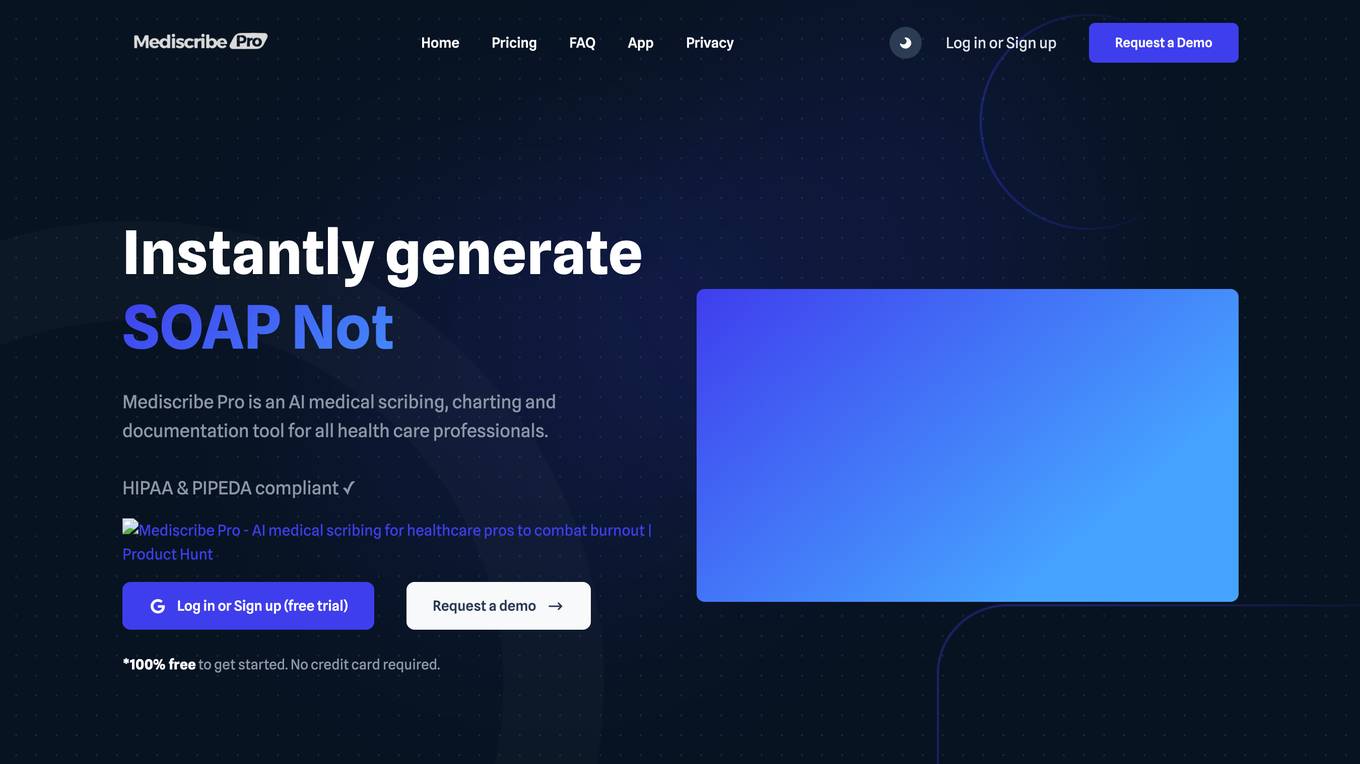
Mediscribe Pro
Mediscribe Pro is an AI-powered medical scribe and documentation tool designed for healthcare professionals. It utilizes advanced medical language models and artificial intelligence to generate medical dictations, transcriptions, and chart notes. Mediscribe Pro is HIPAA and PIPEDA compliant, ensuring the security and privacy of user data. The tool offers a range of features to streamline medical documentation, including a library of 100+ medical templates, voice-activated note-taking, and seamless integration with existing EMR systems. Mediscribe Pro is designed to reduce administrative burden, improve efficiency, and enhance patient care by allowing clinicians to spend more time with patients and focus on providing quality care.
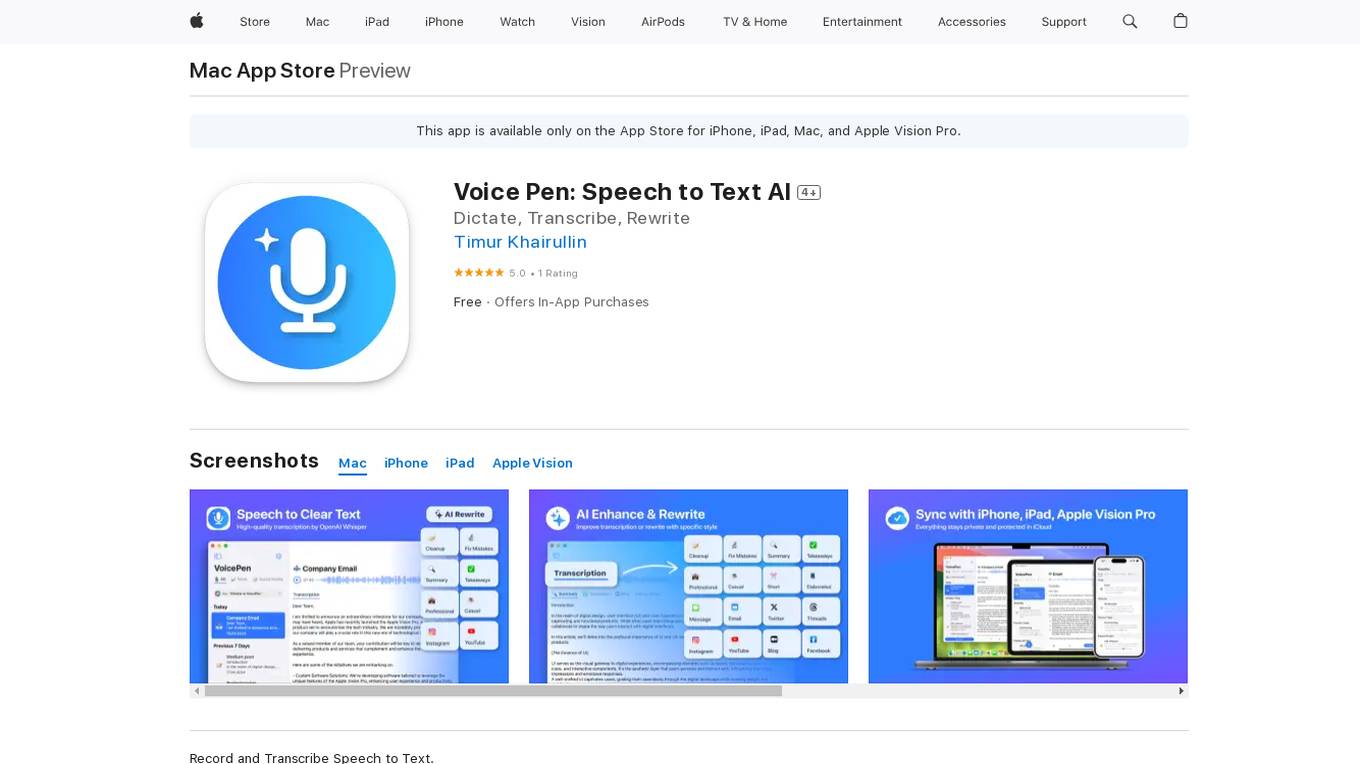
Voice Pen
Voice Pen is a Speech to Text AI application available on the App Store for Apple devices. It allows users to record and transcribe speech into text, which can then be used to create notes, summaries, emails, messages, and blog posts. The app supports more than 50 languages and offers AI options for rewriting and transforming text. Voice Pen enhances productivity by providing features like background audio recording, language autodetection, and the ability to create various types of content. It also prioritizes user privacy by only collecting app usage analytics and not storing any audio or text data on its servers.
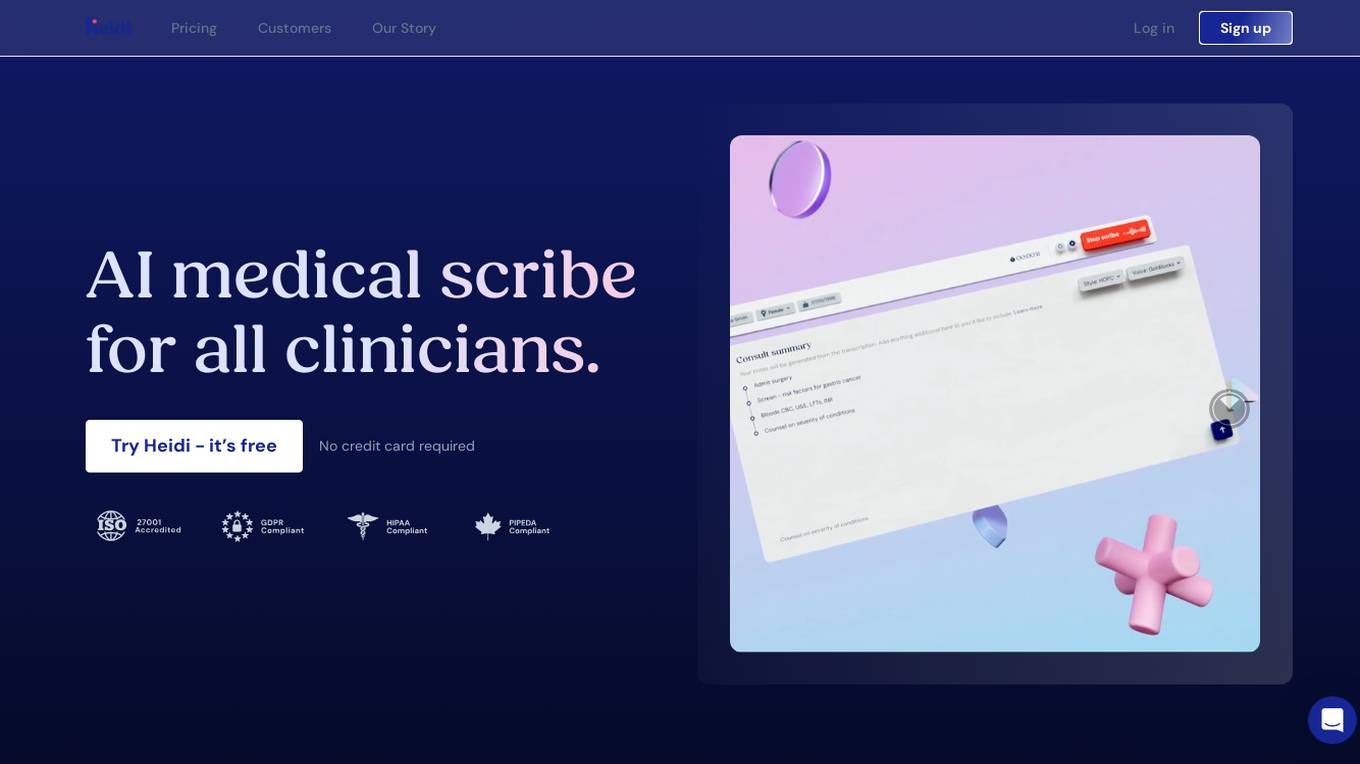
Heidi
Heidi is an AI-powered medical scribe that helps clinicians save time and improve patient care. It uses natural language processing to capture every detail of a patient visit, and then automatically generates a note that is tailored to the clinician's preferences. Heidi can also be used to create letters, add billing codes, and generate patient summaries. It is trusted by clinicians and healthcare staff in over 35 countries.
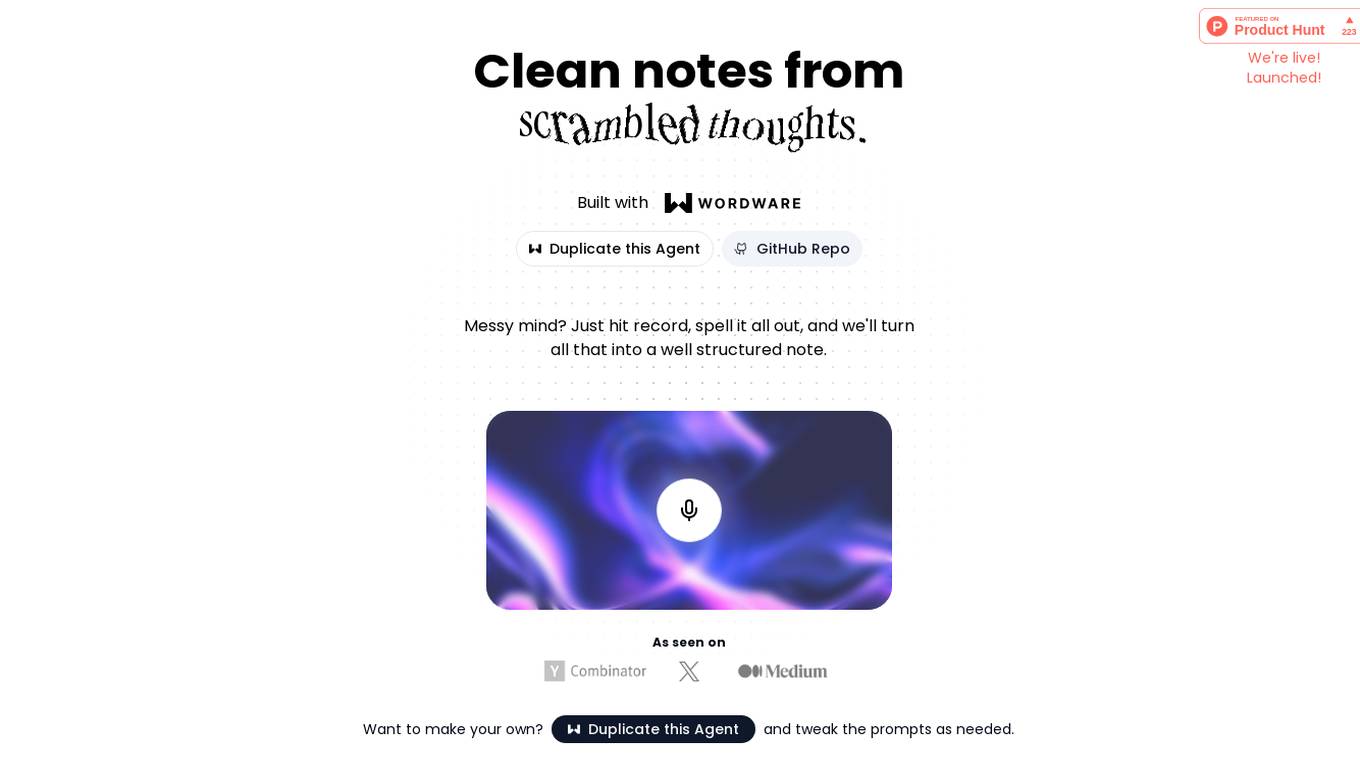
Audioscribe
Audioscribe is an AI-powered Record-to-Text tool developed by Wordware. It allows users to easily convert spoken words into well-structured notes. The tool is designed to help individuals clean up their thoughts by recording and transforming them into organized text. Audioscribe is part of Wordware's suite of applications that aim to streamline various tasks through AI technology, catering to both technical and non-technical users.
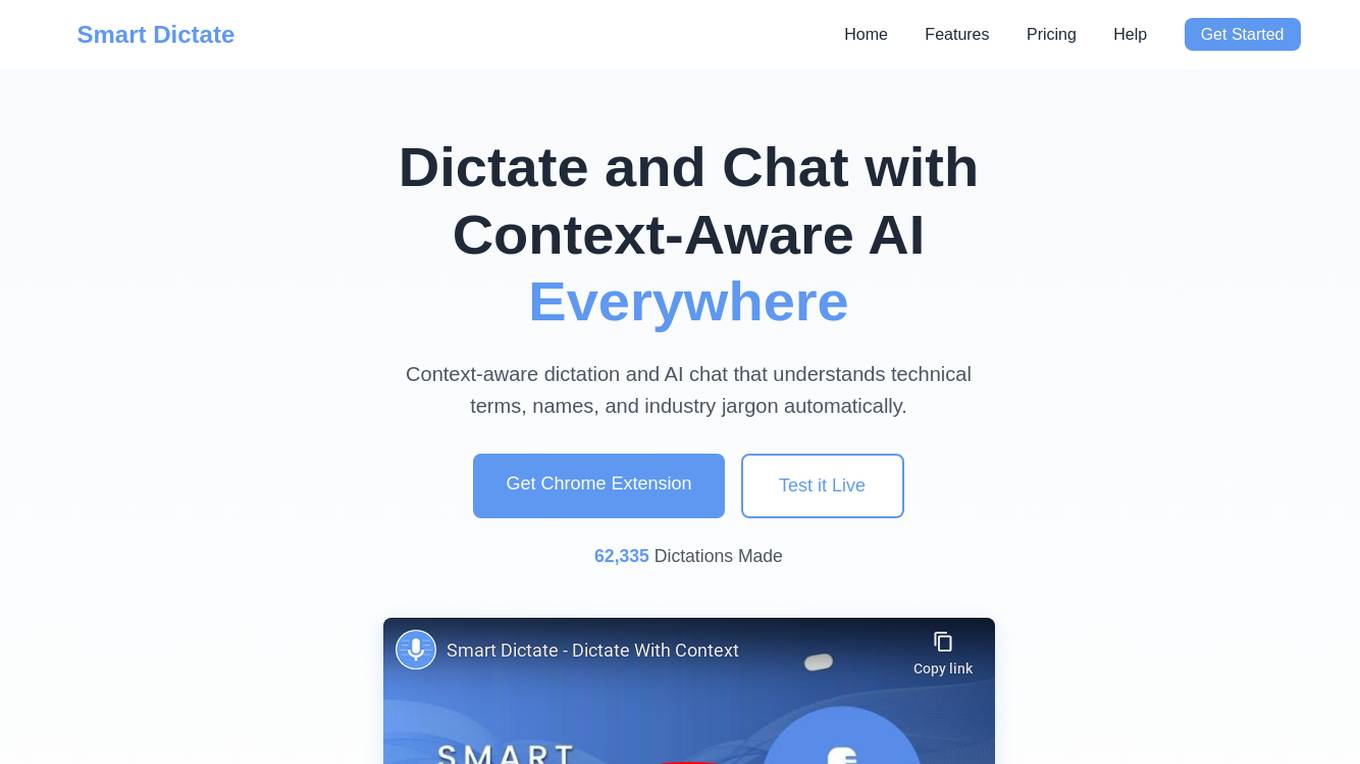
Smart Dictate
Smart Dictate is a context-aware dictation and AI chat application designed for the web. It utilizes AI technology to understand technical terms, names, and industry jargon automatically, providing users with accurate transcriptions across various platforms. With lightning-fast speed and real-time transcription capabilities, Smart Dictate aims to enhance workflows and save users valuable time in tasks such as email communication, social media interactions, and documentation.
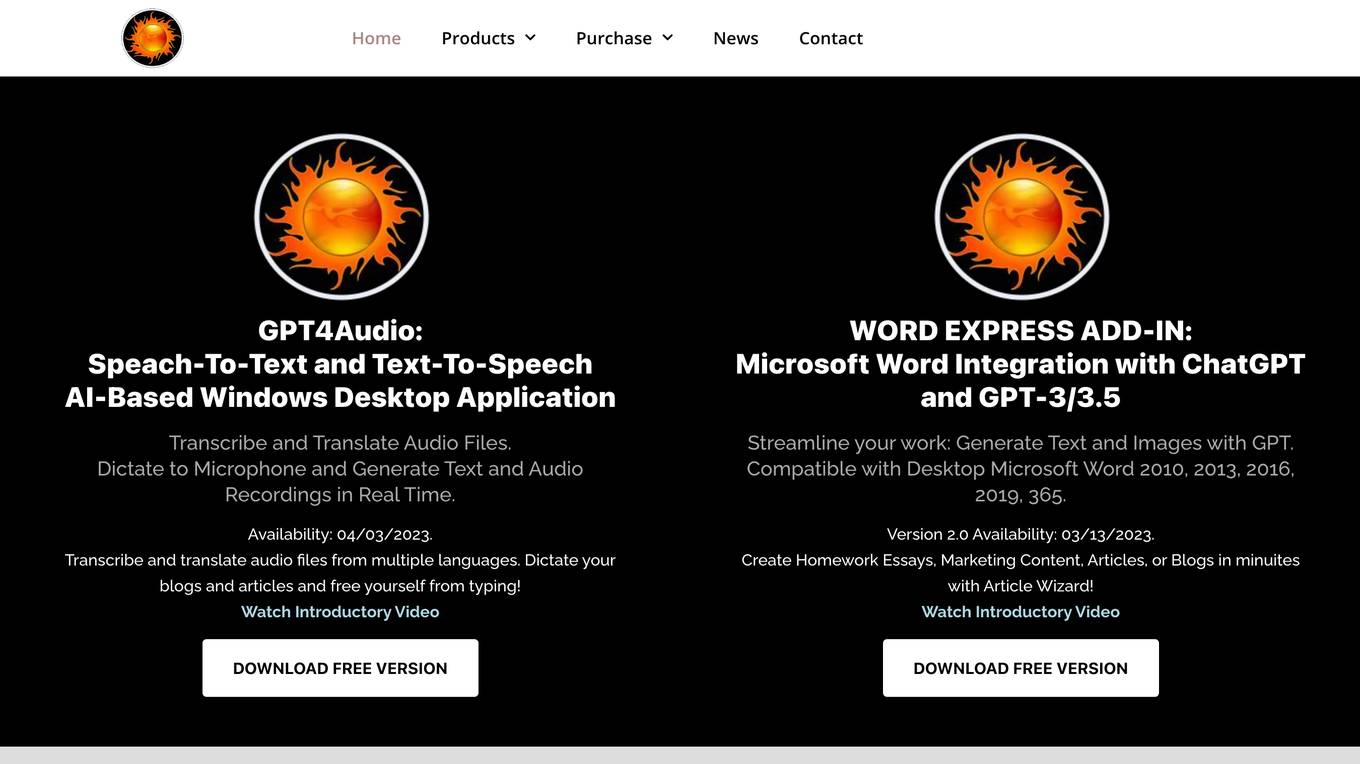
GPT4Audio
GPT4Audio is an AI-based desktop application that offers speech-to-text and text-to-speech capabilities. It allows users to transcribe and translate audio files from multiple languages, as well as dictate text and generate audio recordings in real time. The application also includes an Article Wizard feature that can help users create homework essays, marketing content, articles, or blogs quickly and easily.

Crumb
Crumb is an AI food generator application that helps users create unique and delicious recipes by transforming their available ingredients. Users can simply dictate their ingredients to the AI tool, which then generates recipes to inspire everyday cooking and reduce food waste. With a variety of recipe ideas and tips available on the blog, Crumb aims to make cooking more creative and convenient for users.
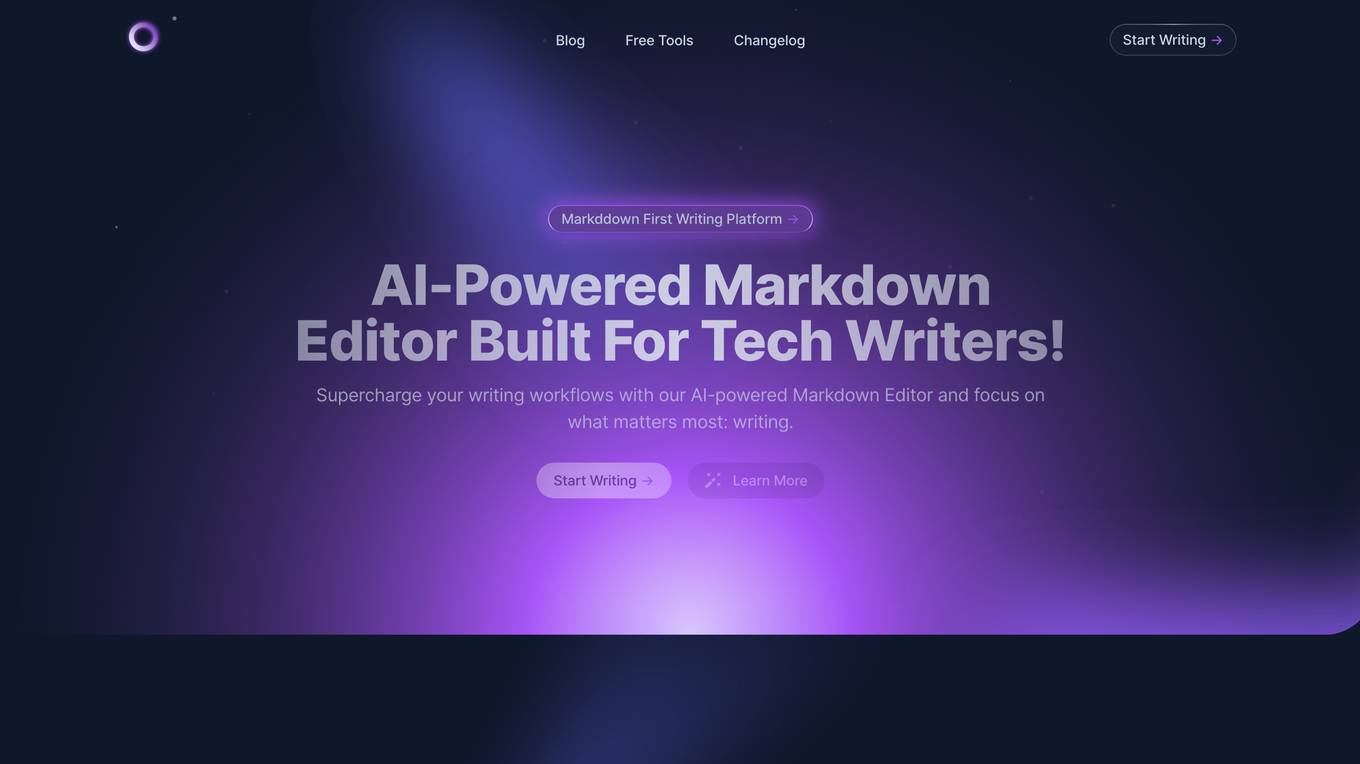
MD Editor
MD Editor is an AI-powered markdown editor designed for tech writers. It offers intelligent suggestions, formatting assistance, and code highlighting to streamline the writing process. With features like article management, powerful editor, sync & share, and customizable experience, MD Editor aims to boost productivity and improve the quality of technical writing. Users can import articles, generate drafts with AI, write from scratch, add code snippets, tables, images, and media, dictate articles using speech recognition, and get article metrics. The platform supports exporting to multiple formats and publishing to various platforms.
1 - Open Source AI Tools
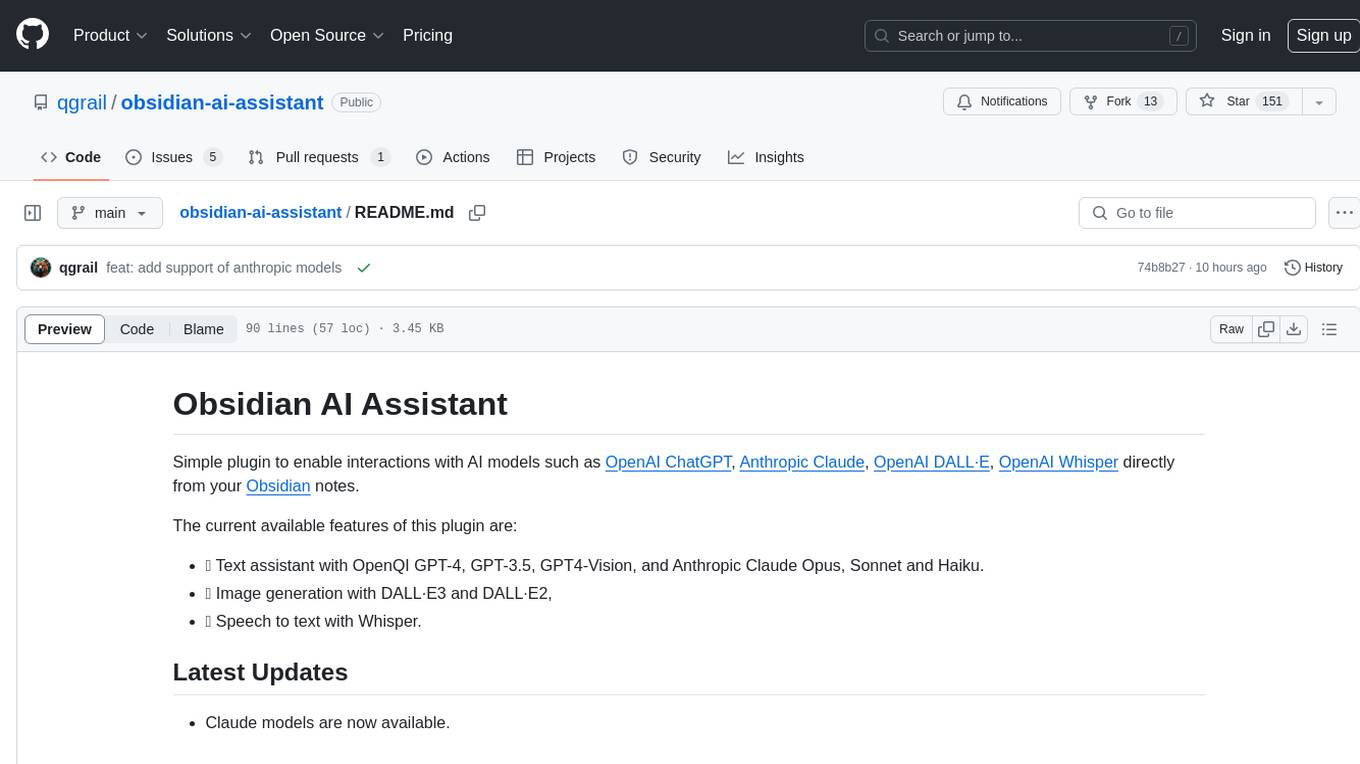
obsidian-ai-assistant
Obsidian AI Assistant is a simple plugin that enables interactions with various AI models such as OpenAI ChatGPT, Anthropic Claude, OpenAI DALL·E, and OpenAI Whisper directly from Obsidian notes. The plugin offers features like text assistance, image generation, and speech-to-text functionality. Users can chat with the AI assistant, generate images for notes, and dictate notes using speech-to-text. The plugin allows customization of text models, image generation options, and language settings for speech-to-text. It requires official API keys for using OpenAI and Anthropic Claude models.